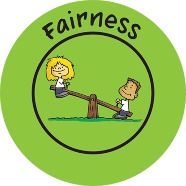 It’s probably true that we all want fairness in life. At the same time, we’re told that life isn’t fair. The simple fact of finding oneself in a divorce may seem to confirm the unfairness of life.
It’s probably true that we all want fairness in life. At the same time, we’re told that life isn’t fair. The simple fact of finding oneself in a divorce may seem to confirm the unfairness of life.
We all see fairness differently. It’s subjective. It can’t be proven one way or another objectively. Given two identical divorce settlement agreements, one might seem fair to one couple but unfair to another.
Sometimes individuals and couples come to me as a divorce mediator and Certified Divorce Financial Analyst because they think I will be the arbiter of fairness. I have to let them down easy. I explain that I can help them understand and carefully consider all the factors at play (factual, legal, emotional, etc.), but only they can decide what they consider to be fair.
Does the Law Provide Fairness?
No doubt fairness was one of the main considerations in the development of the law. But there were others as well, such as expediency.
The law calls for dividing a couple’s community net worth 50/50. On the surface this is fair. It makes it relatively easy for a judge to divide a couple’s assets and debts. But it may not seem fair to all couples, especially when the spouses have much different future financial prospects.
How about the guideline child support calculation? The law presumes it is correct and therefore should be applied. But it only takes into account the number of minor children, the after-tax spendable incomes of the parents and the percentage of time each parent has the children. Actual living costs and other constraints for each spouse are not considered. The calculation is certainly expedient and well meaning. But is it fair in all cases?
Instead of Fairness…
In most divorces, you are more likely end up with something approaching fairness if you work out a settlement yourselves, perhaps with the help of a divorce mediator. That way you make all the decisions, rather than a judge.
Instead of wishing for someone else to adjudicate fairness in your divorce, it’s much wiser to take responsibility for determining fairness yourself. However, this implies going beyond surveying the forest; you’ll need to make a dive into “the trees” of your particular situation.
When you understand all the relevant facts, the basics of the relevant law, the financial and tax implications, the best interests of your children, and each spouse’s needs, desires and constraints, you have empowered yourself to be able to make appropriate, well-informed decisions. Some compromises may be needed to reach a settlement. You probably won’t be able to get everything you want. But your decisions can be practical and they can make the best of an unfortunate situation.
When you reach settlement decisions this way, you can more easily accept them.
And your initial focus on achieving the somewhat nebulous, subjective and emotional concept of fairness tends to be gone – replaced by a degree of calmness. Because you made the best decisions you could, given the circumstances. And your settlement will accomplish your divorce and resolve its inherent conflict, which in time should bring you some peace and freedom.







